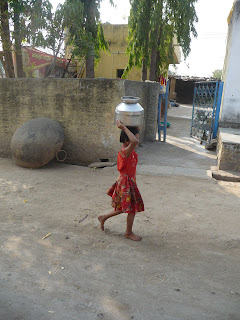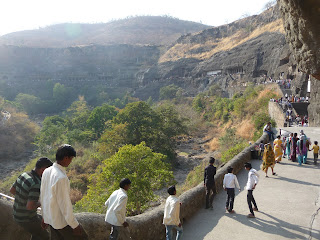Angelica
Grant, a Psychology major in the Verrazano Class of 2013, received a Verrazano Study Abroad Scholarship to spend the
Spring 2013 semester in Hong Kong. Read below for more about Angelica's experience with Chinese New Year in Hong Kong.
 Gong Hey Fat Choy! (which means “Happy Chinese New
Year” in Cantonese!) A week ago marked my first month of classes at the City
University of Hong Kong, and so far it has been an amazing experience studying
abroad as a CSI Exchange Ambassador! Apart from working on school assignments, I’ve
been busy meeting other new students, exploring the city, and signing up for
volunteer activities. As the Year of the Snake just began this week, I’m
looking forward to spending some time this Chinese New Year vacation reading, relaxing
and having fun with friends!
Gong Hey Fat Choy! (which means “Happy Chinese New
Year” in Cantonese!) A week ago marked my first month of classes at the City
University of Hong Kong, and so far it has been an amazing experience studying
abroad as a CSI Exchange Ambassador! Apart from working on school assignments, I’ve
been busy meeting other new students, exploring the city, and signing up for
volunteer activities. As the Year of the Snake just began this week, I’m
looking forward to spending some time this Chinese New Year vacation reading, relaxing
and having fun with friends!
Getting know
the local students at City U has been quite fun! My residence hall is made up
of mostly local Hong Kong students who are very friendly and eager to meet
exchange students and learn about where they are from. I’ve met a few students
already at the first hall meeting who were nice enough to teach me a few words
in Chinese (one of my floormates even showed me how to write my name in Chinese
Putonghua: 天使,
J). My roommate Kiera is from Hong Kong as
well, and within the first few weeks of the semester she invited me to go
shopping and took me to a noodle shop that served great noodles! Needless to
say, I’m enjoying Chinese food even more so now that I can use chopsticks and
eat meat, rice and noodles like almost everyone else in Hong Kong!
During my
free time over the Chinese New Year break, I went to Tsim Sha Tsui with a group
of exchange students to see the fireworks over the harbor on the Avenue of the
Stars and visited the 10,000 Buddhas Monastery, which is located in Sha Tin.
There are dozens of life-size golden Buddhas at this site that sit along the
sides of the path as you hike uphill to reach the main temple. The main temple contains almost 12,000 miniature Buddhas that line the walls and several other larger
figures that surround the outside area at the top of the hill. It was amazing
to see all of the handcrafted Buddhas and the elaborate statues that people were
paying tribute to. However, it was difficult for me at times to keep a straight
face when looking at some of the Buddhas with the more “human-like”
expressions!
I also
signed up to participate in a volunteer group with my residence hall that will
be tutoring children who come from refugee families in Hong Kong. The organization,
called Vision First, will have volunteers meet with a local student once a week
for a total of eight weeks and teach them a school subject that is relevant to
their studies (i.e. English, Math). The program will begin in the next few
weeks and I’m looking forward to the experience since it will give me the opportunity
to step outside of my daily life on campus, get to know the people of Hong Kong,
and become more integrated in the community by helping a child learn a few
skills they can use to do their best in school.
With the end
of the vacation in a few days, I’m glad I had this week to celebrate and relax
before classes start again on Monday. Living and studying abroad in Hong Kong
has been an exciting adventure so far and I look forward to many new adventures
and a prosperous New Year as the semester progresses!

























